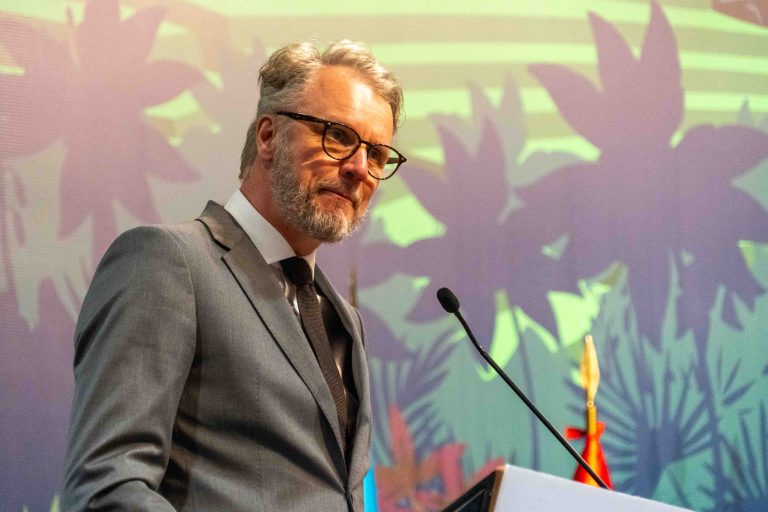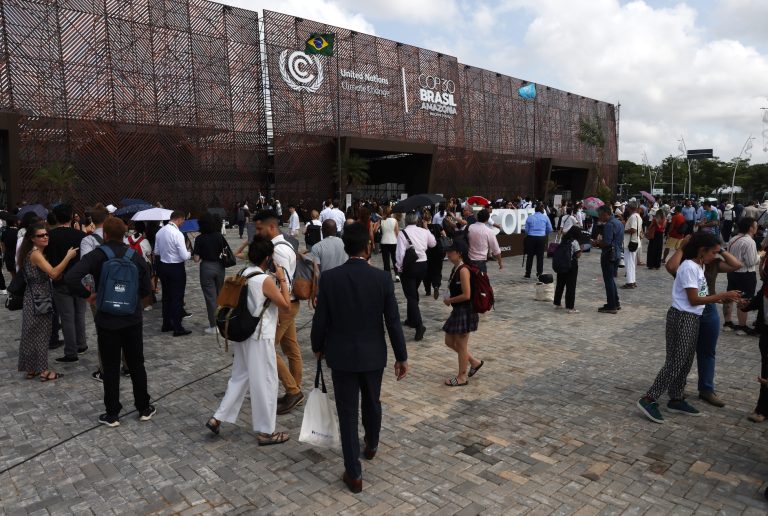Lima, Peru — Full Speech Delivered by ISF Secretary General Michael Keller at the Opening Ceremony of the Eleventh Session of the Governing Body of the International Treaty on Plant Genetic Resources for Food and Agriculture, on Monday, 24 November 2025, 10:00H, on behalf of the International Seed Federation.
Distinguished delegates, colleagues, and friends,
The Seed Sector’s Global Diversity and Responsibility
It is an honour to speak on behalf of a private sector that reflects the extraordinary diversity of our global community: more than 15,000 entrepreneurs, cooperatives, SMEs, and seed companies, active in over 100 countries and stewarding more than 80 crops.
This diversity is our strength and serves as a reminder of the vital role that every actor plays in supporting 800 million farmers who are nourishing and feeding the world. These farmers face the immense challenge of increasing food output by 70% by 2050 to meet the global needs of a growing population.
It is a pleasure to be in Lima, as it was an incredible experience to spend the Crop Diversity Day on Friday at CIP and to taste “out of the world cuisine.” Thank you, Peru and Switzerland, for hosting us.
In many ways, this feels like the ideal place to highlight the unique importance of the International Treaty to the seed sector. It remains the only multilateral, globally agreed legal instrument that ensures that plant genetic resources are conserved, shared, and used for the benefit of all—especially the world’s farmers. It bridges continents and farming traditions, linking fields to laboratories, and securing the foundations of resilient food systems.
Innovation Depends on Access to Genetic Resources
For plant breeders, genetic resources are the backbone of innovation, the raw material of progress. While private investment in breeding continues to grow, our programmes depend on a broad genetic diversity from commercial varieties, landraces, crop wild relatives, and material conserved in gene banks. Innovation and diversity go hand in hand, and innovation is what farmers and consumers all over the world need.
Ensuring farmers have access to quality seed options that meet their diverse needs is a responsibility we all share. However, in several regions, farmers still lack reliable access to the quality seed they need to thrive and adapt to a changing climate. Commercial breeders are actively engaged in both for-profit and not-for-profit initiatives that address this issue.
Today, we have an opportunity to strengthen the complementarity of different seed systems and actors—formal and informal; public and private, farmer and scientist—and to reaffirm the essential contributions farmers make in situ.
Allow me to mention here the SECICGRA program, in which Peruvian universities, and the Ministry of Agriculture, together with the Peruvian Seed Association (APES), provide training and development for the private sector to improve seed selection and engage youth. Also, the SeedsForFood Coalition, which strengthens collaborative efforts and inclusive seed systems with a diversity of actors.

Ensuring Coherence Across Frameworks
The work of this Governing Body over the coming days is therefore critical, perhaps even a last opportunity to make the Treaty the effective, trusted instrument the world urgently needs. We reaffirm today our deep commitment to supporting the Treaty and contributing constructively to the process ahead.
A strong and functional Multilateral System benefits everyone. Solutions should include a well-structured subscription and a single-access option, under reasonable rates, with clarity of obligations, and an ambitious expansion of Annex 1.
We call on governments to ensure that users who comply with the Treaty are recognized as compliant across other ABS frameworks, including those related to digital sequence information. Coherence builds trust; trust enables progress and benefit sharing.
Supporting Farmers Through Stronger Seed Systems
The seed sector’s commitment to Farmers’ Rights as expressed in the Treaty is unwavering. Achieving an appropriate balance between farmers’ rights and breeders’ rights is essential to building a resilient agricultural system. Our partnerships with farmers, through capacity building, technology transfer, support to gene banks, and public–private initiatives, demonstrate our dedication to benefit-sharing and inclusive decision-making.
In closing, I would like to borrow a phrase from the late great Peruvian writer and Nobel laureate, Mario Vargas Llosa, who said, “in real life, time is something that devours us; it does not give us the necessary perspective to understand how this time in which we are immersed flows; and so we do not have the necessary distance to understand really what is happening.” Today and throughout the week, here in Lima, we must find the perspective that time does not easily grant us. Because the choices made here will shape the future not just of the Treaty, but also with it, the ability of breeders and farmers to ensure food security long after this session ends.
Thank you.
Further reading:


